Georgia Says Plot To Kill Israeli Citizen By IRGC Foiled
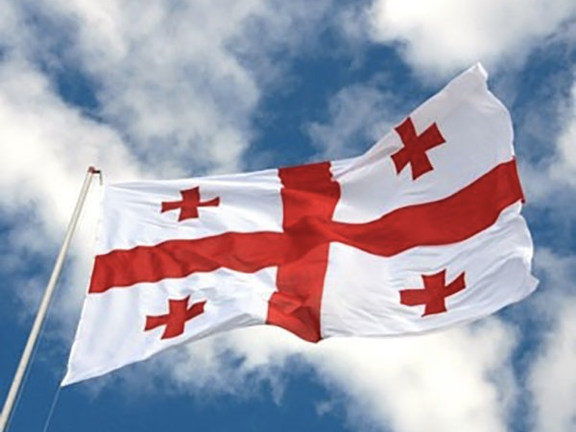
Georgia’s security officials said Tuesday they have foiled an Iranian plot to assassinate an Israeli citizen on their soil.

Georgia’s security officials said Tuesday they have foiled an Iranian plot to assassinate an Israeli citizen on their soil.
The murder had been planned by Iran’s Revolutionary Guard Quds Force which conducts overseas operations of the IRGC.
The plan was to kill Itzik Moshe, a businessman who worked to advance Israel-Georgia ties.
The State Security Service of Georgia released a statement on Tuesday saying the man planning the attack has been arrested, and the one who apparently ordered the murder is identified as an Iranian national working outside Georgia.
The security agency also said several people were arrested in the course of the investigation, including Georgians who held dual citizenship with Iran or Pakistan.
Dual Iranian-Georgian citizens residing in Georgia delivered weapons to a Pakistani hit man without meeting him directly; rather, they used hiding places for the weapon transfer, added the statement.
The news from Georgia came months after Israeli and Turkish intelligence agencies worked together to stop an Iranian plot to assassinate Israeli tourists in Istanbul. Jerusalem warned Israelis not to visit Turkey in June, and soon after, Turkey arrested eight members of an Iranian cell in hotel rooms in a popular tourist district, with weapons and ammunition.
Last October, Cyprus foiled an Iranian plot to attack Israelis, including billionaire Teddy Sagi, which Tehran denied. Cypriot authorities arrested a Russian-Azeri man who had a loaded pistol with a silencer in his rented car.
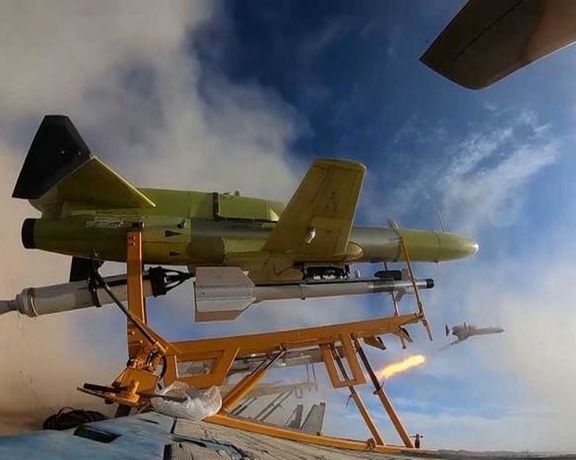
Washington Tuesday imposed sanctions on companies and people it accused of being involved in the production or transfer of Iranian drones that have been used by Russia in attacks on civilian infrastructure in Ukraine.
Russia has procured drones from Iran that have been used to attack cities and power infrastructure in Ukraine.
Iran has acknowledged that it had supplied Moscow with drones but said they were sent before the war in Ukraine.
"As we have demonstrated repeatedly, the United States is determined to sanction people and companies, no matter where they are located, that support Russia's unjustified invasion of Ukraine," Treasury Secretary Janet Yellen said in the statement.
"Today's action exposes and holds accountable companies and individuals that have enabled Russia's use of Iranian-built UAVs to brutalize Ukrainian civilians," she said.
The US Treasury Department, in a statement, said it imposed sanctions on the Shahed Aviation Industries Research Center, which it said was subordinate to Iran's Revolutionary Guard Corps (IRGC) Aerospace Force, accusing the firm of being responsible for the design and production of Shahed-series drones being used by Russian forces in Ukraine.
Also designated were United Arab Emirates air transportation firms Success Aviation Services FZC and iJet Global DMCC, which the Treasury accused of collaborating with an Iranian firm under US sanctions to coordinate flights between Iran and Russia, including those tied to transporting Iranian drones.
Treasury said the action against the two companies was taken in cooperation with the government of the United Arab Emirates.
Tuesday's move freezes any US assets of those designated and generally bars Americans from dealing with them.
Reuters report
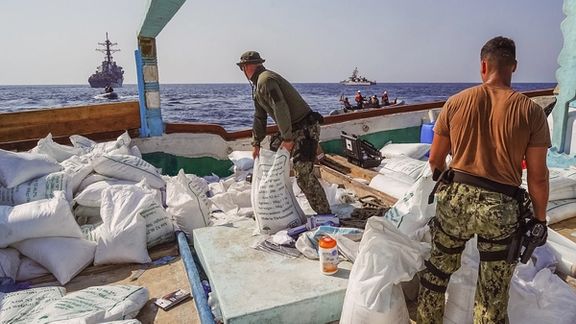
The US Navy says it intercepted a fishing vessel in waters near Iran that was smuggling “massive” amounts of explosives.
This ship was transiting from Iran along a route in the Gulf of Oman that has been used to traffic weapons to Yemen's Houthi group, reported Reuters.
Releasing a statement on Tuesday, US Navy's Fifth Fleet said its forces found over 70 tons of ammonium perchlorate on the vessel that is generally used to make rocket and missile fuel, as well as explosives.
“This was a massive amount of explosive material, enough to fuel more than a dozen medium-range ballistic missiles depending on the size,” said Vice Admiral Brad Cooper, commander of US Naval Forces Central Command, US 5th Fleet and Combined Maritime Forces.
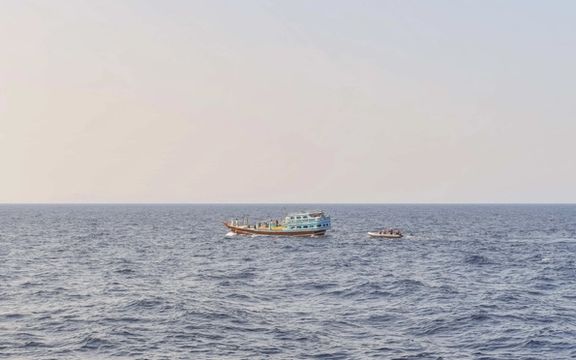
A Saudi-led military coalition battling the Iran-aligned Houthis in Yemen since 2015 has repeatedly accused Tehran of supplying weapons to the group, but the Islamic Republic denies the accusation.
The Islamic Republic has not commented on the accusation yet.
The Fifth Fleet further noted that four Yemeni crew were onboard the vessel which was also carrying 100 tons of urea fertilizer that is used in agriculture but also for making explosives.
US forces sank the ship on Sunday in the Gulf of Oman as it was a "hazard to navigation for commercial shipping" and its crew were handed over to the Yemen coast guard, it added.
Last December, the Fifth Fleet seized a shipment of rifles and ammunitions from a fishing boat. It announced that the cargo is believed to be sent by the Islamic Republic for the Houthis.
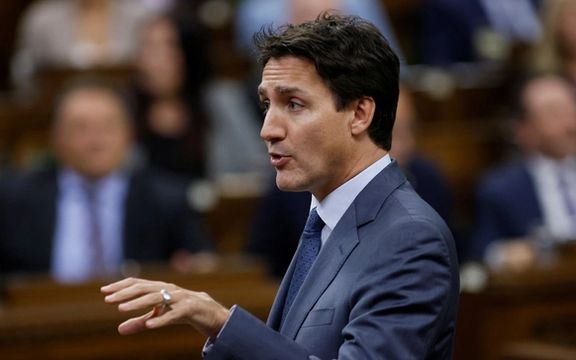
Canada's government has announced senior officials of the Islamic Republic have been officially banned from entering Canadian soil.
Minister of Public Safety of Canada, Marco Mendicino, in a news release on Monday said Canada has designated the Islamic Republic of Iran as a regime that has engaged in “terrorism and systematic and gross human rights violations.”
“This means that tens of thousands of senior members of the Iranian regime, including many members of the IRGC, are now inadmissible to Canada,” added Mendicino.
The list of senior officials encompasses a wide array of individuals in a regime that stands accused of perpetrating crimes against the people of Iran and other nations.
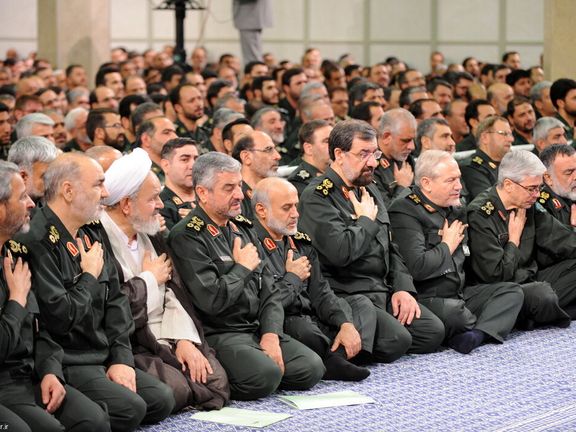
According to the Canadian government, heads of state, members of the Cabinet, ambassadors, senior diplomats, members of the judiciary, senior military and intelligence officials and senior public servants are included in the list.
“In addition to being banned from entering Canada, current and former senior officials present here may be investigated and removed from the country,” added the press release.
Mendicino, further noted that “Ottawa is taking decisive action by designating the Iranian regime and its most senior officials including the IRGC … and the consequences will be severe.”
He said this is the strongest sanction imposed on the Iranian regime yet, reiterating “we will continue to stand up for women’s rights and fight for justice on behalf of the families of PS752. Canada will be a beacon for human rights around the world.”
Ukraine International Airlines Flight PS752 was a scheduled international civilian passenger flight from Tehran to Kyiv, operated by Ukraine International Airlines. On 8 January 2020, it was shot down by the IRGC shortly after takeoff, killing all 176 passengers and crew aboard.
Meanwhile, Canada's Minister of Immigration, Refugees and Citizenship, Sean Fraser also asserted in a similar statement that senior officials of the Iranian regime and the IRGC are inadmissible to Canada.

“Canada is a country that many have come to in search of a safer and more prosperous future for them and their loved ones. Canada has a vibrant Iranian population, some of whom fled oppression in the past, and we are determined to take the most effective steps to keep them and all Canadians safe,” added Fraser.
Fraser went on to say that Iranian officials’ actions are reprehensible, and their views have no place in Canadian society.
In another development, Canada’s Prime Minister Trudeau in a tweet slammed the brutality of the Iranian government, saying “Canada denounces the Iranian regime’s barbaric decision to impose the death penalty on nearly 15,000 protestors.”
Expressing support for the Iranian protesters, Trudeau underscored that “the brave Iranians were fighting for their human rights – and we continue to stand united in support of them, and united against the regime’s heinous actions.”
The nationwide uprising, largely led by women, has seen daily protests in cities across Iran calling for an end to rule by hardline clerics in the aftermath of the death of a 22-year-old woman, Mahsa Amini, in the custody of morality police in September.
Back in October, Canada announced sanctions against Iran’s Revolutionary Guard (IRGC), permanently banning over 10,000 of its officers from entering Canada.
At the time, Trudeau said Canada has had designated Iran's IRGC leadership, adding that “we will restrict financial transactions with the Islamic Republic of Iran associated with the IRGC and the proxies that support them. These actions are some of the strongest measures anywhere against Iran.”
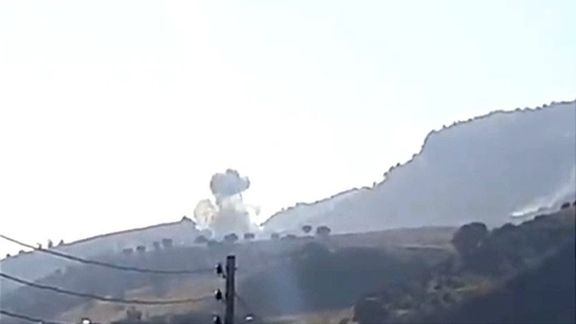
Iran’s Revolutionary Guard’s latest round of shelling of Iraqi Kurdistan region has drawn condemnation by Western countries as well as the Iraqi government.
In a Monday phone call with his Iranian counterpart Hossein Amir-Abdollahian, Iraqi Foreign Minister Fuad Hussein decried the attacks as a violation of Iraq's sovereignty, saying that the continuation of such unilateral measures is "dangerous".
Moreover, Kurdistan Region Prime Minister Masrour Barzani also condemned the “violations” of Iraq and its Kurdish region’s sovereignty, following IRGC’s attacks on the headquarters of Iranian-Kurdish groups, some of which are armed.
According to Iran International’s correspondent, the RGC targeted the main base of the Democratic Party of Iranian Kurdistan (PDKI) in capital Erbil and Komala in Sulaymaniyah with drones and missiles.
The PDKI said a senior party member and a Peshmerga militiaman were killed and several other Peshmerga forces injured in the Monday attacks.
The Canadian Embassy in Iraq, the US Consulate General in Erbil, the UN Assistance Mission for Iraq (UNAMI) and the German Consulate General in Erbil have so far condemned the renewed attacks on the Kurdistan Region.
The German Consulate-General in Erbil said that Berlin urges Iran to respect the territorial integrity and sovereignty of Iraq. “The attacks have to stop immediately,” it said.
Since the current wave of protests began in Iran following the death in custody of young Iranian Kurdish woman Mahsa (Jina) Amini, the Islamic Republic has intensified its attacks on Kurdish dissident groups based in Iraqi Kurdistan, apparently aimed at intimidating the Kurds. In addition to PDKI and Komala, IRGC launched artillery and suicide drone attacks against positions of other Kurdish groups opposed to the Islamic Republic such as Parti Azadi Kurdistan, aka PAK (Kurdistan Freedom Party).
The US also strongly condemned Iran’s “violations of Iraqi sovereignty”, calling on the Islamic Republic to stop attacking its neighbor and the people of Iraq. “We stand with the Iraqi government’s leaders in Baghdad and the Iraqi Kurdistan region,” the Consulate General in Erbil said on its twitter account.
“Iraq should not be used as an arena to settle scores and its territorial integrity must be respected,” UN Assistance Mission for Iraq said, adding that “Dialogue between Iraq and Iran over mutual security concerns is the only way forward.”
Amini was from the Kurdish town of Saqqez and was arrested and beaten during a visit to Tehran. After her death in hospital, her hometown and other Kurdish cities were the first to launch antigovernment protests.
Late in October, the Iranian Army's Ground Force also launched a three-day war game around the northwestern town of Piranshahr in West Azarbaijan province bordering Iraqi Kurdistan.
Iran’s last barrage of missile and drone strikes against the groups in September led to the death of 14 people, including women and children, and wounding of 58 other people near Erbil and Sulaymaniyah.
The Islamic Republic calls the Kurdish armed groups in the western provinces of Iran, "terrorist groups" or "anti-revolutionary" but these groups say that the goal of their armed campaign is "defending the rights of the Kurds".
Generally, the Kurdish parties − including Komala and the KDPI − favor Kurdish autonomy within a federal Iran.
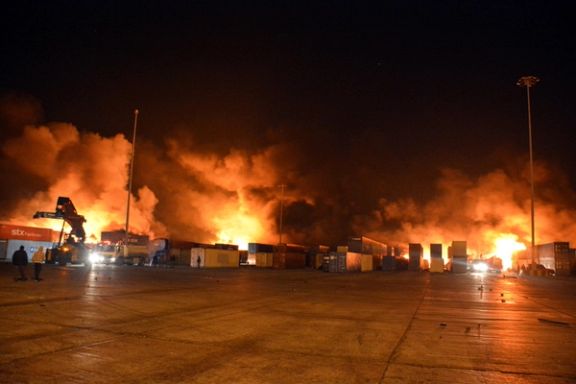
Israeli missiles hit a major air base in Syria's Homs province Sunday, killing two servicemen and injuring three others, the state news agency SANA reported.
Military sources said the air base, at Shayrat, was recently used by the Iranian air force.
Syrian state media posted a short video of the "aggression" and said there were material damages, without elaborating.
One military source, who was not authorized to speak publicly, said the strikes had targeted a runway in the sprawling air base that is located southeast of Homs city.
A spokesperson for the Israeli military refused to comment, although Israel has conducted hundreds of similar strikes since 2017.
The runway and underground facilities at Shayrat, including aircraft shelters, have undergone a major expansion by the Russian military in the last three years, the military source said.
Russia has forces stationed near to Shayrat air base and uses the base, security sources say.
Israel has in recent months intensified strikes on Syrian airports and air bases to disrupt Iran's increasing use of aerial supply lines to deliver arms to allies in Syria and Lebanon including Lebanon's Hezbollah.
The UK-based Syrian Observatory for Human Rights which monitors such events said a warehouse for Iranian militias and Hezbollah in Shayrat air base were destroyed in Sunday's strike.
Opposition sources say Iranian militias hold sway in large swathes of western Homs province near the Lebanese border and to the east where they have a string of bases.
Israel has been mounting attacks in Syria for years against what it has described as Iranian and Iran-backed forces that have deployed there during the war, which began more than a decade ago.
With reporting by Reuters